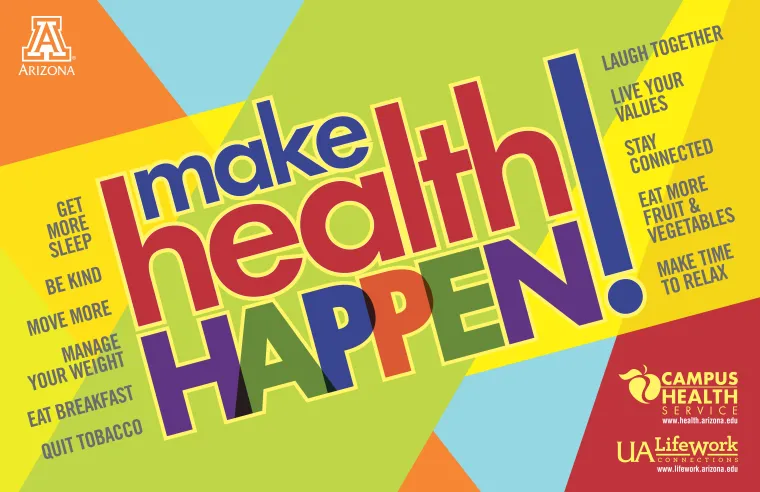Feel Good In Grad School
Prioritizing the activities and daily habits that help you feel good can make you happier, healthier, and ready to face whatever challenges come your way.
5 Grad School Tips
Understand Your Procrastination
Fine-Tune Your Motivation
Eat the Frog Strategy
Take immediate action. Do the thing you’re dreading first. Persist until it’s done.
Surround Yourself with Your Goal's Environment
Go to the places that are most conducive to meeting your goal. Surround yourself with people who “get” or at least support you in your goal. Develop the habits that will help you meet your goal.
Make Your Goals Visual
To make the process of working toward your goal more fun and rewarding, give yourself a visual reminder of your goal and your progress. Think giant grocery store fundraiser thermometer. Take time every day to mark your progress.
Create a Mental Board of Directors
Identify the most influential people that you’d like to “consult” with as you work toward your goal. Read what they’ve written, watch their videos, and imagine what they would tell you when challenges arise.
Manage Perfectionism & Burnout
What Do You Want?
Focus on creating what you want (vs. what you don't want or what you want to avoid) to stay motivated and reduce stress.
Prioritize Genuine Support
When you need input or a helping hand, go to the people who geniuinely support you.
Zoom Out
Zoom out and appreciate the journey you're on and the progress you've made when you're overwhelmed or burned out.
Feel Good on the Way
Make choices that help you feel the way you want while you’re working toward your goal – avoid the “I’ll be happy when” trap.
Take a Holistic Approach to Your Well-Being
Burn-out is common in grad school and one of the major reasons for leaving a graduate program. You can prevent and recover from burnout by making sure you're prioritizing wellness.
Start Your Personal Wellness Plan
Hear From Other Grad Students
Learn More
Find Your Community
- Share whatever's on your mind and learn from others in the Togetherall online mental health community. It's safe, anonymous, and free for UArizona students. Join Togetherall to give and get support, learn new strategies, and unlock helpful self-care tools.
Take Supportive, Construction Actions
Practice Constructive Self-Talk
Talk to yourself with encouragement and kindness. Give yourself the benefit of the doubt. And remind yourself of your strengths, what you appreciate in your life, and your ability to figure things out.
Cultivate a Constructive Mindset
Take a constructive perspective by noticing what's working and how you can build on it. A constructive attitude is also solution-focused. In challenging situations, turn your attention to answerable questions, solvable problems, and the resources available to you.
Identify Constructive Actions
Before you burn out, make a point of asking what would be most constructive...even if it's not the most "productive" thing. Consider sustainability and take the actions that are most supportive to your success and your wellness.
Build a Community
Find like-minded students, identify mentors, and find your spot off-campus. When you get together, try to reserve at least some time to talk about something other than work.
Ask for Help When You Need It
During grad school, it can feel like you're supposed to know everything and keep it all together easily. For many students, this can make the idea of asking for help scary. Whether you have a question about your work, need to delegate work or school tasks, or need support in taking care of something in your life outside of school, asking for support can help you bring order to chaos and prevent yourself from burning out.


